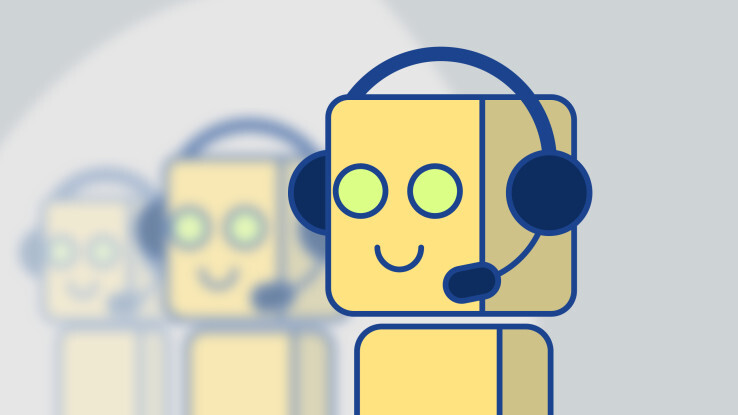
A few years back, cloud computing transformed customer management, giving every small and medium business access to unified data and communication platforms without the need to make heavy investments in IT infrastructure and staff. This time around, the next revolution in the space is being driven by artificial intelligence algorithms that help businesses automate customer outreach and make optimal use of data.
Beneath the surface of the roiling sea of data we’re generating hide exceptional business and sales opportunities. But the problem is there’s now more information available than limited human resources and legacy tools can handle.
Fortunately, making sense of data, both structured and unstructured, is something that artificial intelligence is becoming increasingly proficient at. While we’re still least decades away from human-level synthetic intelligence—AI that will match the human brain in reasoning and decision making—machine learning algorithms, computer vision, natural language processing and generation (NLG/NLP), and other forms of narrow artificial intelligence are proving to be the best complement for human activity.
AI-powered tools are now helping scale the efforts of sales teams by gleaning useful patterns from data, finding successful courses of action, and taking care of the bulk of the work in addressing customer needs and grievances.

AI-powered CRM suites
Main providers of Customer Relationship Management (CRM) solutions have started to invest in the added value of AI. Last year, SalesForce, the leader in the CRM industry, announced Einstein, an AI assistant that, when launched, will be omnipresent across its platform. Einstein puts its AI chops to work to continuously study the flood of data SalesForces collects from sales, e-commerce activity, emails, IoT generated data and social media streams among others. The AI engine will then make suggestions across different use cases. For instance, it helps sales reps focus on the most promising leads based on engagement data analysis, or gives advice on when to trigger email campaigns according to customer response history.
SAP, another top competitor in the field, is also joining the fray by adding AI functionalities to its S/4HANA cloud ERP. The tacked-on features will give automated insights into the business data the system collects. This includes monitoring accounts or preparing lists of top vendors for an organization based on their pricing, past performance and ability to deliver.
Oracle also declared its cloud AI project earlier this year, called Adaptive Intelligence. The initiative involves a series of add-on applications that integrate with its cloud suite. These apps combine third-party data with real-time analytics to optimize decisions and recommendations in various domains. For example, the AI Offers app merges data from the company cloud and the Oracle Data Cloud to extract contextual insights into individual customer behaviors and provide personalized offers as visitors browse websites powered by the Commerce Cloud.

Specialized AI in outbound marketing
Other players are focusing on verticals and optimizing specific disciplines. Growbots, a lead generation platform, uses machine learning algorithms to automate the prospecting process and marketing campaigns. The platform uses machine learning algorithms to scan websites and gather publicly available information, and enrich its database of profiles about people and businesses. Growbots incorporates this information with client CRM data to identify new potential customers and create tailored prospect lists. The platform integrates with SalesForce and uses AI to enhance and automate email marketing, creating tailored emails for customers, scheduling campaigns and sending follow ups at opportune times. The AI engine uses Natural Language Processing to parse responses and channel positive replies to the sales team.
Such solutions can be a boon to salespersons who are under constant pressure to meet quotas. By enhancing and automating the routine-based parts of the business process, AI-powered tools enable sales teams to focus on their efforts on better serving the more complicated and human-demanding needs of customers. Over time, as these solutions continue to process company and customer data, they become more efficient in their functionality.
Another example is Conversica, an AI-powered assistant that functions like a sales employee and reaches out to anyone who has shown interest in the company, such as by downloading a whitepaper or requesting information from the website. The assistant processes replies from customers, determines feedback and potential questions and crafts a meaningful reply. The assistant passes off the lead to a human salesperson when the time is right.

AI-powered customer service chatbots
Another interesting development in the space is the advent of customer service chatbots, which have become more popular in recent years. Powered by AI algorithms, these bots are becoming much more efficient at independently identifying and resolving customer problems through natural conversation. These assistants free up staff time for more critical and complicated tasks.
Amelia is a virtual customer assistant that uses natural language processing to understand customer queries and provide answer based on data gathered from previous interactions and the company knowledge base. According to estimates, Amelia solves 55 percent of incidents. When it doesn’t have an answer or senses a frustration or hostility, it will pass on to a human operator.
Soul Machines, a eerily named startup based in New Zealand, is creating chatbots with expressive digital faces that understand and manifest human emotion. Nadia, the first iteration of their technology, uses AI algorithms to discern human tone and facial expression. The developers believe these chatbots will eventually create a richer experience and be able to engage customers at a much more personal level.
These are some of the trends that are transforming the ways businesses interact with their customers. AI-powered customer support and management will surely result in more satisfied and less frustrated customers, and more productive sales teams. We expect to see more exciting developments in the space in the coming months.
Get the TNW newsletter
Get the most important tech news in your inbox each week.




